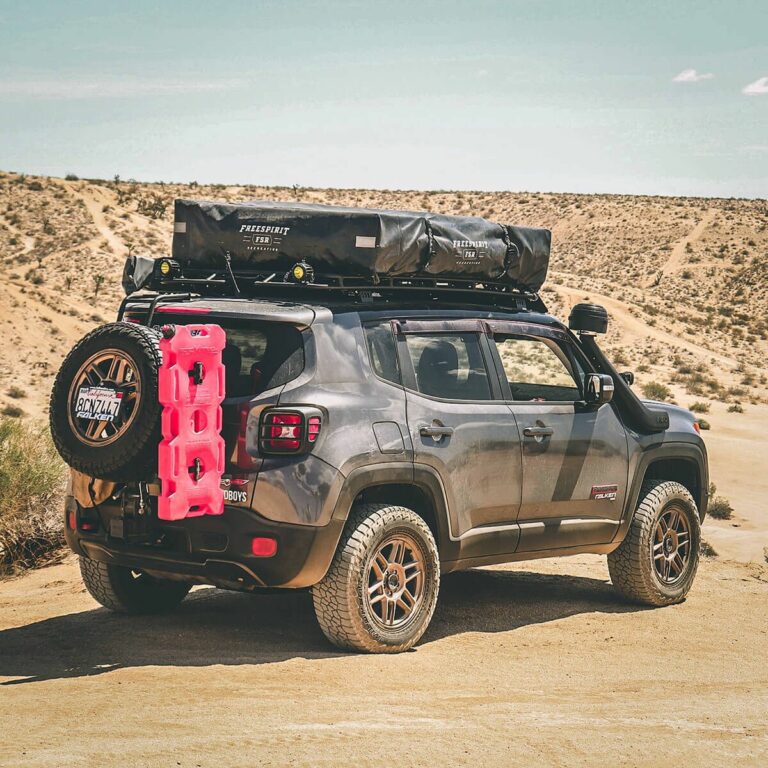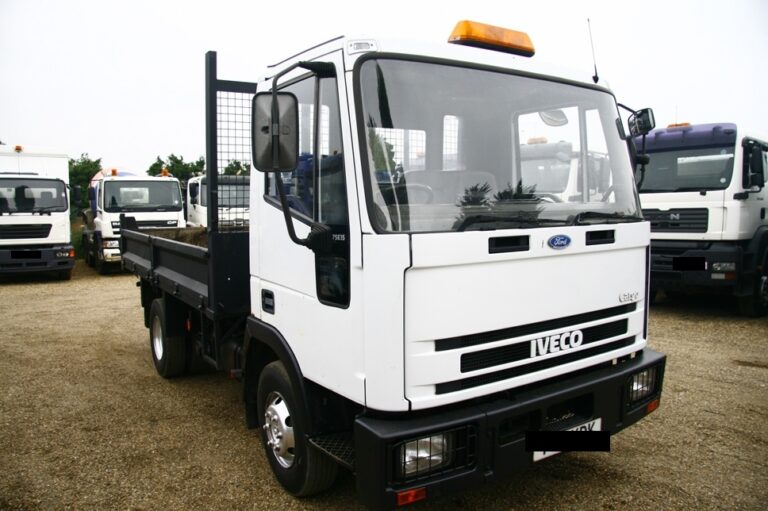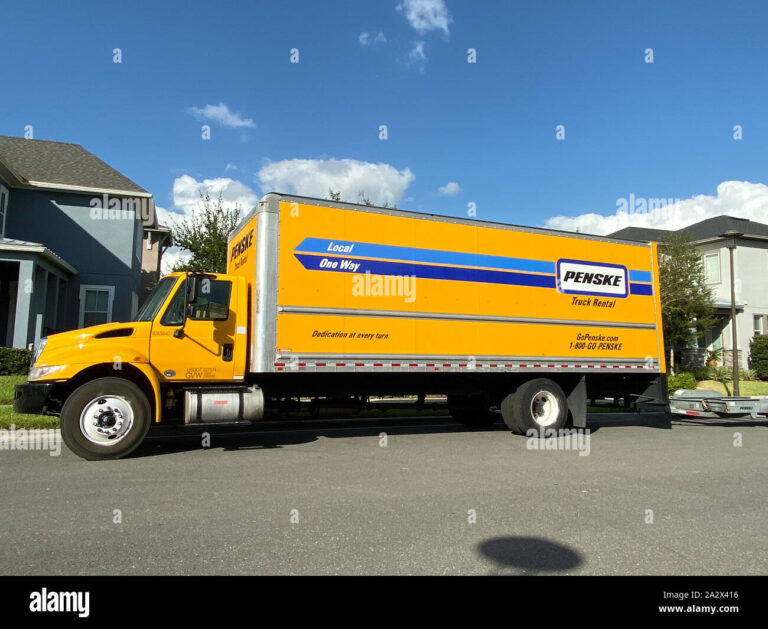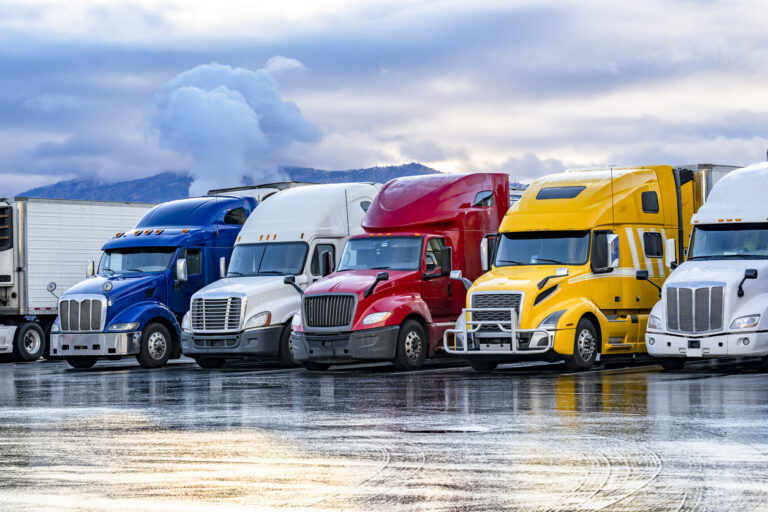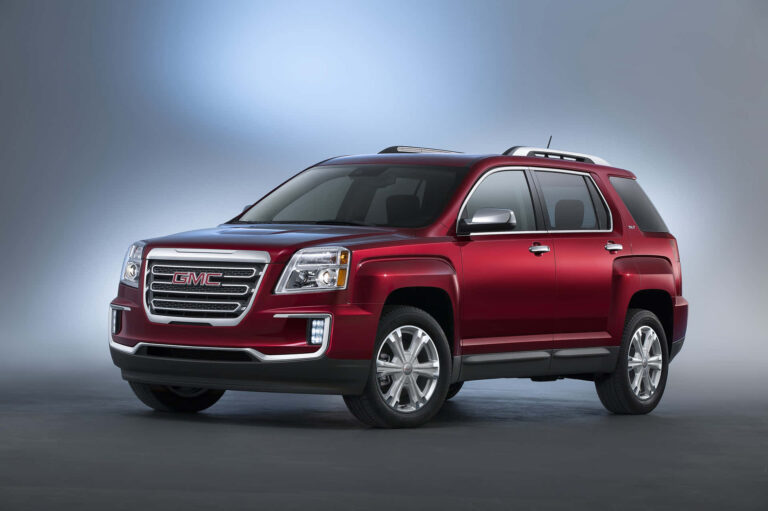Key Difference Between Car And Truck Insurance
Key Difference Between Car And Truck Insurance cars.truckstrend.com
The rumble of an engine, the open road – whether it’s a sleek sedan or a robust pickup, vehicles are an indispensable part of modern life. And just as essential as the vehicle itself is the insurance that protects it, and you, from the unforeseen. While both cars and trucks require insurance, assuming their policies are interchangeable is a common misconception that can lead to inadequate coverage, significant financial risk, or even policy cancellation. The "Key Difference Between Car And Truck Insurance" isn’t merely a nuance; it’s a fundamental divergence rooted in the inherent design, purpose, and risk profile of these distinct vehicle types. Understanding these differences is paramount for anyone looking to properly protect their assets, ensure legal compliance, and navigate the complex world of automotive insurance.
Fundamental Distinctions in Vehicle Purpose and Design
Key Difference Between Car And Truck Insurance
At the heart of insurance differentiation lies the very nature of cars versus trucks. These vehicles are engineered for vastly different purposes, which directly influences how insurers assess risk.
Cars:
Primarily designed for personal transportation, passenger comfort, and fuel efficiency. They are generally lighter, smaller, and have a limited cargo capacity. Their typical use involves commuting, errands, and family travel. While high-performance cars might carry higher risk due to speed, their overall impact potential in an accident is generally less than a larger, heavier vehicle.
Trucks:
Built for utility, hauling, and towing. This category encompasses a broad spectrum, from light-duty pickup trucks (often used personally but with greater utility) to heavy-duty commercial trucks (like semi-trucks, dump trucks, or delivery vans). Their design emphasizes strength, payload capacity, and durability. This inherent design difference directly translates into higher potential for damage and injury in an accident, even for a personal pickup, let alone a commercial rig. The Gross Vehicle Weight Rating (GVWR) – the maximum operating weight of a vehicle as specified by the manufacturer – is a critical factor here, often dictating whether a vehicle is insured under a personal auto policy or requires a commercial one.
Risk Assessment and Underwriting – Why Insurers See Them Differently
Insurers are in the business of assessing risk. When it comes to cars versus trucks, their risk calculations diverge significantly due to several key factors:
- Weight and Size: This is arguably the most impactful factor. Heavier vehicles, especially trucks, carry greater kinetic energy. In a collision, they are capable of inflicting substantially more damage to other vehicles, property, and individuals. A fender-bender involving a small car might be a total loss for the car involved with a heavy truck.
- Usage Patterns:
- Personal Use: A car used for daily commuting and personal errands typically accrues a predictable amount of mileage and faces common road risks.
- Commercial Use: Trucks, particularly those used for business, often travel more miles, operate in more challenging environments (construction sites, busy city streets, highways carrying heavy loads), and may be driven by multiple operators. This increased exposure significantly elevates the risk of accidents.

- Cargo/Payload: Trucks are designed to carry cargo, which can range from personal belongings in a pickup to millions of dollars worth of goods in a commercial trailer. The value and nature of the cargo introduce additional layers of risk, requiring specific cargo insurance coverages that cars do not need.
- Accident Severity and Frequency: While personal pickups might have similar accident frequencies to cars, when they are involved in accidents, the severity tends to be higher due to their weight and potential for rollover. Commercial trucks, due to their size, mileage, and specific operational hazards, have a higher statistical likelihood of being involved in severe, high-cost accidents, often resulting in catastrophic injuries or fatalities.
- Specialized Equipment: Many trucks, particularly those used commercially, are fitted with specialized equipment (e.g., cranes, plows, refrigeration units, lift gates). Damage to this equipment or its malfunction can lead to significant claims, requiring specific endorsements not found on car policies.
- Regulatory Compliance: Commercial trucks are subject to stringent federal and state regulations (e.g., DOT, FMCSA). Insurance for these vehicles must often meet minimum financial responsibility requirements mandated by these bodies, which are far higher than personal auto insurance minimums.


Coverage Types – Overlaps and Divergences
While many fundamental coverage types overlap, trucks often require additional, specialized coverages that are not typically found on standard car insurance policies.
Standard Coverages (Common to Both Cars and Trucks):
- Bodily Injury Liability: Covers costs for injuries you cause to others in an at-fault accident.
- Property Damage Liability: Covers damage you cause to another person’s property (e.g., vehicle, fence, building).
- Collision Coverage: Pays for damage to your own vehicle resulting from a collision with another vehicle or object, regardless of fault.
- Comprehensive Coverage: Protects your vehicle against non-collision incidents like theft, vandalism, fire, natural disasters, or hitting an animal.
- Uninsured/Underinsured Motorist (UM/UIM): Protects you if you’re hit by a driver who has no insurance or not enough insurance.
- Medical Payments/Personal Injury Protection (PIP): Covers medical expenses for you and your passengers, regardless of fault.
Truck-Specific Coverages (Often Not on Standard Car Policies):
- Non-Trucking Liability (Bobtail): Essential for owner-operators who drive their truck without a trailer or when not under dispatch. It covers liability when the truck is being used for personal errands.
- Motor Truck Cargo Insurance: Crucial for truckers hauling goods for others. It covers loss or damage to the freight being transported due to perils like collision, fire, or theft.
- Trailer Interchange Coverage: Covers physical damage to trailers that are not owned by the trucker but are being pulled under a trailer interchange agreement.
- Physical Damage (for Commercial Trucks): This is the commercial equivalent of collision and comprehensive, specifically tailored for the higher value and repair costs of commercial trucks.
- General Liability Insurance: While not strictly vehicle insurance, businesses operating trucks often need this broader coverage for risks not directly related to driving, such as slip-and-falls at a loading dock.
- Downtime Coverage: Provides income replacement if a commercial truck is out of service due to a covered accident, recognizing the significant financial loss from an idle rig.
- Refrigeration Breakdown Coverage: For refrigerated trucks, this covers spoilage of cargo due to a mechanical breakdown of the refrigeration unit.
- Hazardous Materials (Hazmat) Coverage: An essential endorsement for trucks transporting dangerous goods, often requiring higher liability limits and specific state/federal filings.
- Loading and Unloading Coverage: Extends liability to cover damage or injury that occurs during the process of loading or unloading cargo.
Factors Influencing Premiums – Why Trucks are Often More Expensive
It’s no secret that truck insurance, especially commercial truck insurance, is significantly more expensive than car insurance. The reasons are directly tied to the elevated risk profile:
- Higher Potential for Damage and Injury: As discussed, trucks cause more severe accidents, leading to higher payouts for bodily injury and property damage.
- Increased Repair and Replacement Costs: Trucks, particularly commercial ones, have more complex mechanics, larger and more expensive parts, and specialized labor requirements, making repairs costlier.
- Commercial Use Multiplier: If a truck is used for business, the premium dramatically increases due to higher mileage, heavier loads, and exposure to different types of risks (e.g., delivery schedules, multiple drivers).
- Vehicle Value: Many trucks, especially new models or those with custom upfits, have a higher purchase price than the average car, meaning higher comprehensive and collision payouts if the vehicle is totaled.
- Regulatory Filings: Commercial trucking companies often need specific insurance filings (e.g., MCS-90 for federal liability requirements) which add to the policy’s complexity and cost.
- Driver Factors: While important for cars, driver experience, driving record, and even age are intensely scrutinized for truck insurance, especially for commercial drivers. A single accident or violation can drastically increase premiums.
- Deductibles and Limits: Commercial truck policies often carry much higher liability limits (e.g., $750,000 to $5 million for federal requirements), directly translating to higher premiums.
Practical Advice for Insuring Your Vehicle
Navigating the insurance landscape for cars and trucks requires careful consideration. Here’s actionable advice:
- Be Honest About Usage: This is the most critical piece of advice. If you use your pickup truck for any business purpose – even occasional deliveries or hauling materials for a side job – you must disclose this to your insurer. Misrepresenting your vehicle’s use can lead to claims being denied and policy cancellation, leaving you uninsured in a critical moment.
- Know Your Truck’s GVWR: For personal pickups, the GVWR often determines whether it’s insured under a personal auto policy or if it tips into the "commercial" category. Trucks over a certain GVWR (often 10,000 lbs or 1 ton) might automatically be classified as commercial, even if used personally.
- Shop Around Extensively: Don’t settle for the first quote. Insurance premiums vary wildly between providers. Get quotes from multiple insurance companies that specialize in both personal and commercial auto insurance.
- Bundle Policies: If you have multiple vehicles or need home insurance, bundling policies with the same insurer can often lead to significant discounts. Commercial policyholders might bundle their fleet, general liability, and property insurance.
- Maintain a Pristine Driving Record: For both personal and commercial drivers, a clean driving record is the single most effective way to keep premiums down. Accidents and violations directly impact your rates.
- Consider Higher Deductibles: If you have a solid emergency fund, opting for a higher deductible on your collision and comprehensive coverages can lower your monthly premiums. Just ensure you can comfortably afford the deductible if a claim arises.
- Understand Endorsements and Exclusions: Don’t just look at the price. Read your policy carefully to understand what is and isn’t covered. Are there specific exclusions for certain types of cargo? Are your accessories covered? Do you need specific endorsements like "agreed value" for a custom truck?
- Regularly Review Your Policy: Life changes, and so should your insurance. If you modify your vehicle, change its primary use, or your financial situation shifts, review your policy with your agent to ensure you still have appropriate coverage.
Concluding Summary
The "Key Difference Between Car And Truck Insurance" boils down to an insurer’s assessment of risk, which is intrinsically linked to the vehicle’s design, primary purpose, and the potential for severe damage or unique liabilities. While both car and truck insurance aim to protect against financial loss from accidents and other perils, truck insurance, especially for commercial use, is characterized by higher liability limits, specialized coverages for cargo and operational risks, and significantly higher premiums due to the greater potential for catastrophic claims.
Understanding these distinctions is not just about saving money; it’s about ensuring you have comprehensive, tailored protection that aligns with your vehicle’s true nature and your specific usage. Don’t just compare prices; compare coverage to ensure you’re adequately protected on the road, no matter what you drive.
Comparative Overview: Car Insurance vs. Truck Insurance (Key Differentiators)
| Feature / Aspect | Car Insurance (Personal Use) | Truck Insurance (General, incl. Personal Pickups & Commercial) |
|---|---|---|
| Primary Purpose | Personal transportation, commuting, family use | Hauling, towing, utility, commercial transport |
| Vehicle Type Covered | Sedans, coupes, SUVs (light), minivans, hatchbacks | Pickups (light to heavy-duty), vans, semi-trucks, dump trucks, flatbeds, box trucks |
| Risk Profile | Lower kinetic energy, less potential for severe damage | Higher kinetic energy, greater potential for severe damage, higher liability exposure |
| Typical Premiums | Generally lower to moderate | Generally moderate to significantly higher (especially for commercial) |
| Liability Limits | State minimums to $1M+ (personal umbrella) | Often much higher, often regulated by federal/state for commercial ($750K – $5M+) |
| Common Coverages | Bodily Injury, Property Damage, Collision, Comprehensive, UM/UIM, MedPay/PIP | All common car coverages, PLUS truck-specific coverages |
| Truck-Specific Coverages | Not applicable | Motor Truck Cargo, Non-Trucking Liability (Bobtail), Trailer Interchange, Downtime, Hazmat, Refrigeration Breakdown |
| Factors Affecting Cost | Driver age, driving record, credit score, vehicle type, location, mileage | All car factors, PLUS GVWR, usage (personal vs. commercial), cargo type, radius of operation, specialized equipment, regulatory filings |
| Regulatory Compliance | State minimum liability requirements | Federal (FMCSA, DOT) and state regulations for commercial vehicles |
| Usage Disclosure | Crucial to disclose any business use, even occasional | Essential to specify exact commercial operation (e.g., for-hire, private carrier, radius) |
| Downtime Impact | Minimal financial impact on owner (loss of transport) | Significant financial loss for commercial owner/operator if truck is inoperable |
| Average Cost (Conceptual) | Low to Moderate | Moderate to Very High |
Note: The "Average Cost (Conceptual)" is a general indication and not an actual price. Actual premiums vary widely based on numerous individual factors.
Frequently Asked Questions (FAQ)
Q1: Is my pickup truck considered a car or a truck for insurance purposes?
A1: It depends. For insurance purposes, light-duty pickup trucks (like a Ford F-150 or Chevy Silverado 1500) used primarily for personal transportation are often insured under a personal auto policy, similar to a car. However, if your truck has a high Gross Vehicle Weight Rating (GVWR, often above 10,000 lbs), or if you use it for any business activities (hauling materials for a job, making deliveries, etc.), it will likely require a commercial truck policy, even if it’s technically a "personal" vehicle. Always be upfront with your insurer about your truck’s GVWR and its intended use.
Q2: Can I use my personal car insurance for my small business deliveries or hauling?
A2: Generally, no. Personal car insurance policies typically have an "exclusion for business use." If you use your personal vehicle for business-related activities (e.g., pizza delivery, ride-sharing, hauling equipment for a landscaping business), you usually need to inform your insurer and may require a commercial auto policy or a specific endorsement. Failing to do so can lead to a denied claim in the event of an accident, leaving you personally liable for damages.
Q3: What is "bobtail" insurance?
A3: Bobtail insurance, also known as Non-Trucking Liability, is a specific type of coverage for owner-operators who drive their semi-trucks without a trailer, or when they are not under dispatch for a motor carrier. It covers liability for accidents that occur when the truck is being used for personal errands or non-business-related travel. It fills the gap when the primary motor carrier’s insurance (which typically covers the truck only when under dispatch) does not apply.
Q4: Why is truck insurance so much more expensive than car insurance?
A4: Truck insurance is more expensive primarily because trucks, especially commercial ones, pose a significantly higher risk to insurers. They are heavier and cause more damage in accidents, leading to higher bodily injury and property damage claims. They often carry valuable cargo, travel more miles, and face more complex operational hazards. Repair costs for trucks are also higher. For commercial trucks, the regulatory requirements for liability limits are also much greater.
Q5: Do I need separate insurance for a trailer I tow with my truck?
A5: For personal use, generally, the liability coverage of your tow vehicle (truck) extends to the trailer you’re towing. This means if you cause an accident while towing, your truck’s liability insurance would cover damage or injuries to others. However, the physical damage to the trailer itself (e.g., if it’s damaged in an accident or stolen) is usually not covered by your truck’s policy unless you have specific "non-owned trailer physical damage" coverage or a separate policy for the trailer, especially if it’s a high-value RV, boat, or commercial trailer. Always check with your insurer regarding physical damage coverage for your specific trailer.
Q6: What happens if I misrepresent my vehicle’s use to my insurance company?
A6: Misrepresenting your vehicle’s use (e.g., claiming personal use when it’s used commercially) is considered insurance fraud and can have severe consequences. If your insurer discovers the misrepresentation, they can deny your claims, retroactively cancel your policy, or even pursue legal action. This would leave you personally responsible for all damages, medical bills, and legal fees resulting from an accident, which could be financially devastating. Honesty is always the best policy.

